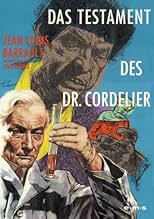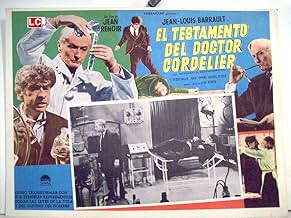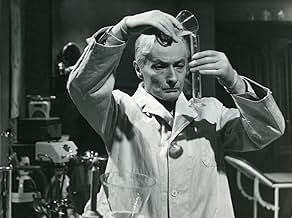This is the only version of "Dr. Jekyll and Mr. Hyde" that enables the viewer to watch the story as if it were new. It's the only one in which the fantastic events proceed from commonplace surroundings: it's set contemporaneously and shot like a documentary program. It's also the only one in which the two characters are believably distinct: one would never guess that the fussy, ascetic Jekyll and the careless, garish Hyde could be the same man. It's the only version that makes clear Jekyll's hypocrisy, which was the point Stevenson was emphasizing and which I never understood before: what Jekyll's friend can't understand--the reason Jekyll blocks the investigation of Hyde's crimes--is not that the criminal has some hold over him, but that he himself is the criminal and is protecting his own good name. Barrault's make-up as Hyde is rudimentary compared to the elaborately gruesome make-ups of the other versions, but what he makes of the character is far more meaningful. This Hyde is comic until he turns violent; he's a cross between Chaplin's tramp, a juvenile delinquent of the 50's, and an aboriginal--figures that can all be seen as embodiments of anarchy. He does exactly as his impulses compel him. Jekyll does the same--but while his patients are anesthetized, so they won't know. This version of "Jekyll", without special effects or filmic style and in modern dress, is the only serious one. I think Stevenson would have respected it.























